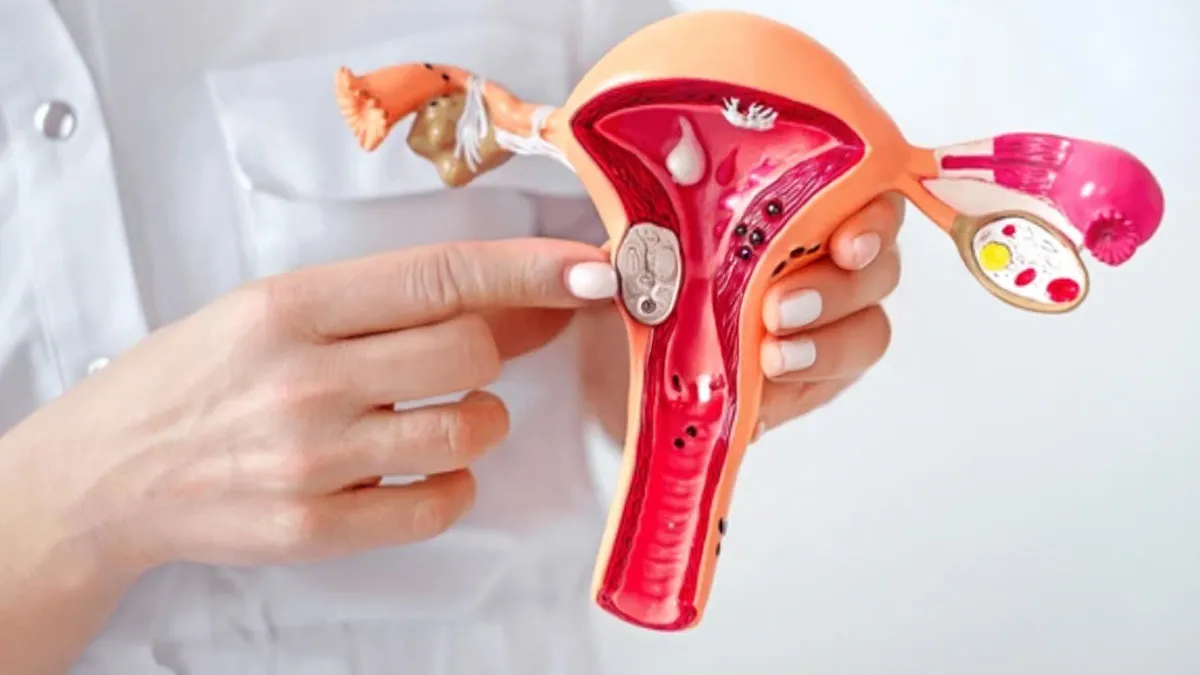
Gynaecologists all over India have in recent years been reporting a worrying trend—increasing numbers of young women in their 20s and early 30s are being diagnosed with fibroids, which until recently were predominantly a condition found among women nearing menopause. Why is this happening? And why should it matter?
Table of Content:-
Fibroids or uterine leiomyomas are benign growths that occur in or around the uterus. They’re common, affecting around 20-40% of women in their reproductive years globally, but what’s changing now is how early they’re being detected among Indian women. Once considered a 'mid-life' issue, fibroids are now increasingly appearing in much younger patients. And that's concerning, not only due to the symptoms, but because it can affect fertility, mental health, and quality of life at an age when many women are just starting their careers, relationships, or plans for parenthood.
We spoke to Dr Rana Choudhary, Consultant, Gynaecology and Obstetrics, Wockhardt Hospitals, Mumbai Central, who explained the reasons for this increased risk of fibroids in women.
According to a 2021 study, uterine fibroids are the most prevalent pelvic tumours in women of reproductive age, impacting over 70% of women globally, especially women of colour. These fibroids differ in composition and size among women, as well as varying in number from one individual to another.
What’s Driving This Early Onset of Fibroids in Indian Women?
Hormonal Imbalance and Early Puberty

"One of the biggest culprits is oestrogen dominance, a hormonal imbalance where the body produces more oestrogen than it needs, and not enough progesterone to balance it. Oestrogen stimulates fibroid growth, and when young girls enter puberty earlier (as is increasingly the case in urban India now), they're exposed to oestrogen for longer. Longer hormonal exposure raises the risk of getting fibroids earlier in life," said Dr Choudhary.
Environmental components, such as hormone-mimicking chemicals present in plastics (BPA), cosmetics, and processed foods, also act similarly to oestrogen in the body and can be a contributing factor to this imbalance.
Other associated factors (due to high oestrogen levels) include:
- Polycystic Ovary Syndrome (PCOS)
- Endometriosis
- Insulin resistance
Obesity and Sedentary Lifestyles
Obesity is also a significant risk factor. The fat cells secrete oestrogen, and excess fat translates into excess oestrogen, which once more fuels fibroid development. With growing rates of obesity among Indian youth, triggered in large part by sedentary habits, screen obsession, and poor diets, this connection is difficult to disregard.
Many women in cities are now juggling high-stress jobs, long working hours, and irregular eating schedules, often skipping meals, bingeing on fast food, or eating late at night. All of this adds up to hormonal chaos.
Also Read: Less Pain, More Relief: The New Era Of Fibroid Treatment Through Intervention Radiology
Stress and Mental Health

"Chronic stress can alter hormone levels in the body, especially cortisol, which indirectly affects oestrogen and progesterone balance. Young Indian women today are navigating multiple pressures, family expectations, career ambitions, relationship conflicts, and social comparison, which can all add up," added Dr Choudhary.
Delayed Marriages and Childbirth
Traditionally, Indian women would often have children in their early 20s. But now, many are getting married later and delaying childbearing for personal or career reasons. From a medical point of view, pregnancy and breastfeeding are fibroid protectives, since they cut down on the frequency of menstrual cycles and the swings of oestrogen. The longer a woman goes without pregnancy, the longer her uterus remains exposed to these hormonal changes. This doesn’t mean women should rush into pregnancy, it’s simply one of several factors contributing to the rise.
Genetics
"Having a family history of fibroids is also significant. If your mother, grandmother, aunts, or sisters have a history of uterine fibroids, then your risk increases three times the average risk," said Dr Choudhary.
Better Awareness and Early Diagnosis
There’s also a silver lining here. The spike in fibroid cases among young women might also be due to increased awareness and early diagnosis. Thanks to better access to gynaecologists, more frequent pelvic ultrasounds, and social media conversations around menstrual health, many women are identifying fibroids earlier than ever before.
What Symptoms Should You Watch Out For?

- Heavy or prolonged periods
- Pelvic pain or pressure
- Frequent need to pass urine
- Painful intercourse
- Difficulty conceiving
It’s important to note that many fibroids are asymptomatic and may only be detected during a routine exam. But if you’re experiencing any of the above, don’t ignore it.
Also Read: How To Prevent Uterine Fibroids? Expert Explains
What Can You Do?
- Maintain a healthy weight
- Exercise regularly
- Eat a balanced, anti-inflammatory diet (less sugar, more greens)
- Reduce stress through yoga, meditation, or therapy
- Avoid xenoestrogens found in plastics and certain cosmetics
- Get regular gynaecological checkups
Bottomline
Dr Choudhary concluded, "The fact that more Indian women are developing fibroids at a younger age is not just a medical issue, it’s a cultural and lifestyle one. By understanding the root causes and making early, conscious changes, we can hope to reduce the long-term impact. Because menstrual health isn’t just a monthly issue, it’s a lifelong journey."
[Disclaimer: This article contains information provided by an expert and is for informational purposes only. Hence, we advise you to consult your professional if you are dealing with any health issue to avoid complications.]
How we keep this article up to date:
We work with experts and keep a close eye on the latest in health and wellness. Whenever there is a new research or helpful information, we update our articles with accurate and useful advice.
Current Version